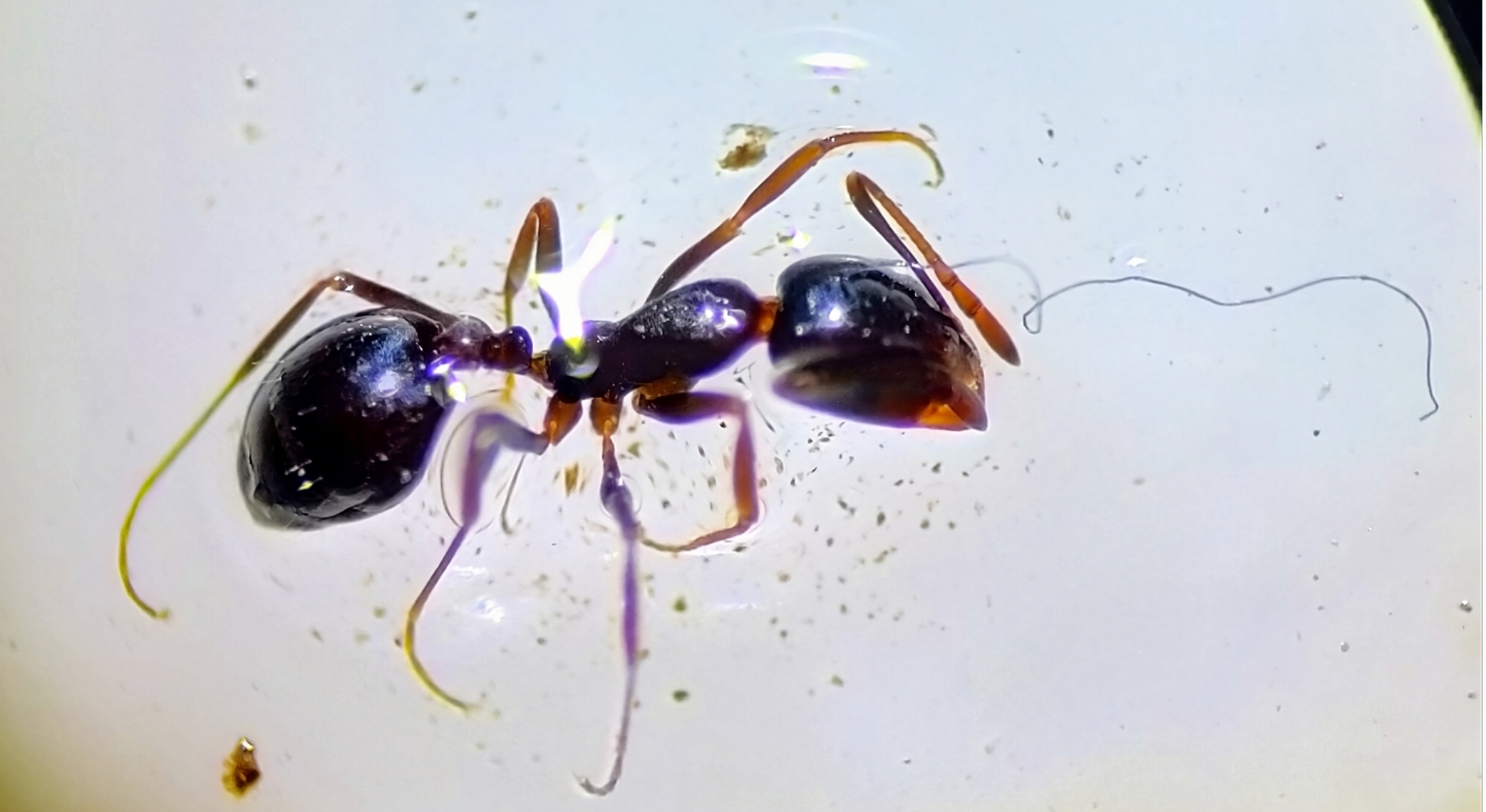The plight of plastic pollution has reached the insects. For the first time, scientists have documented ants becoming entangled in plastic fibers. The impact and extent of the phenomenon aren’t immediately clear, but it marks another milestone in the planet’s deepening problem with plastic pollution.
Armand Rausell-Moreno from the National Museum of Natural Sciences in Madrid first noticed the plastic-trapped ants in 2022 while carrying out fieldwork on the Spanish island of La Palma. Stuck by the observation, he contacted ant expert J. Manuel Vidal-Cordero and Álvaro Luna, a professor at the European University of Madrid with an interest in the impact of plastics on nature.
“Immediately we knew that the story could be interesting, since I usually read many scientific articles about plastic pollution and had not found anything published about this,” Luna, lead author of the new research, told IFLScience.
In a new study, the trio explained how they collected 113 ants from 40 different sites around La Palma. They found that three of the ants had become wrapped in some kind of fiber. Lab tests revealed that two of these fibers were made of plastic, one of which was wrapped around the ant’s abdomen and another curled around an individual’s legs.
The affected species were the Lasius grandis ant, a native resident of the Mediterranean region of Europe and North Africa, and a species from the genus Monomorium.

Another shot of an ant struggling with plastic fibers.
Image courtesy of Armand Rausell-Moreno
This, to their knowledge, is the first published evidence of plastic pollution impacting terrestrial insect species. They suspect this is something that has been occurring for some time, but has gone unnoticed.
“What the first data seem to indicate is that the interaction of invertebrates with plastic could be occurring without attention having been paid until now,” explained Luna.
The impact of the plastic entanglement on the ants is not yet understood. It is also not clear how prolific the problem may be since this study had a relatively small sample size from a single island. For now, there’s simply not enough data.
“To be honest, I believe that neither we nor anyone to date has a real estimate of the extent to which this problem is occurring, and whether it is something widespread and serious or not,” Luna added.
“If I may speculate, I believe that a problem of entanglement as widespread as in marine ecosystems (cetaceans, birds, turtles) should not be occurring at the level of entanglements in insects, but there is no data that can confirm or reject any hypothesis. In any case, I’m sure that plastics are interacting with insects and invertebrates in general in many ways not well studied to date,” he continued.
Plastics have only been widely produced since the 20th century, but their presence has been found in practically every natural environment on the planet, from the bottom of the seafloor to the freshly laid snow of Antarctica. The impact of this on living things is only just starting to be understood.
Aside from the ants of La Palma, it’s starkly obvious that plastic pollution is having a hugely negative impact on the natural world. Sea turtles and seabirds are frequently found dead with bellies full of plastic, while synthetic nets and fishing pose a ubiquitous threat to marine mammals.
The new study is published in the journal Ecological Entomology.
Source Link: Ants Found Tangled Up In Plastic Pollution For The First Time